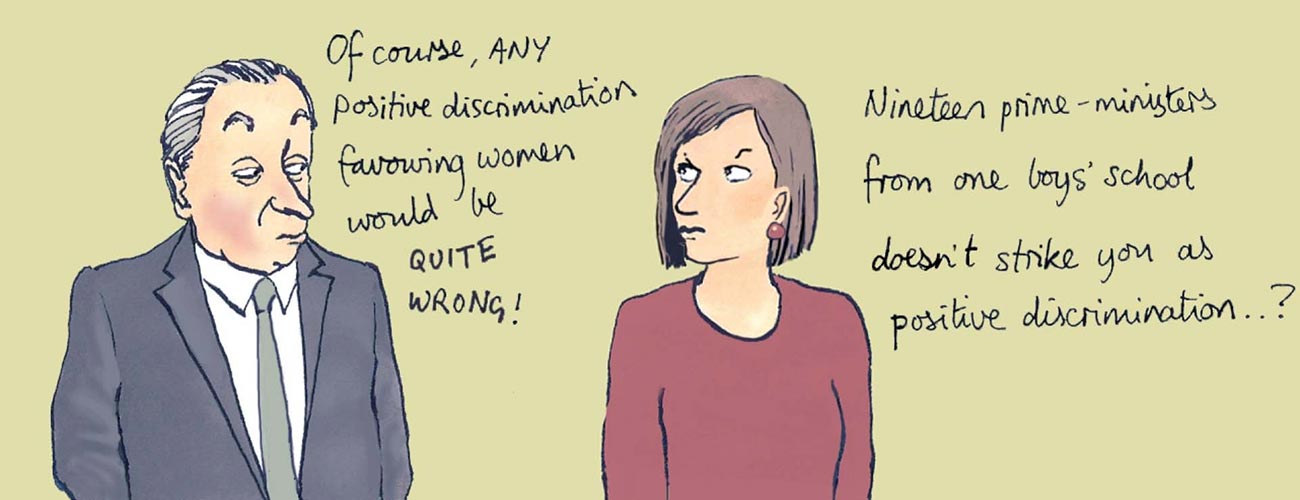I have been to quite a number of women’s events recently in one guise or another and have been pondering on the different ways we discuss inequality and sexism. In sociology, the word ‘discourse’ is used to describe the “ways in which a particular subject may be discussed”. This implies rightly that there is more than one way, depending on the context and people involved. Nowhere is this more true than when we are discussing women in the workplace and women’s equality.
So let me use the events to illustrate what I mean… Firstly the Opportunity Now dinner, held to promote gender equality in the workplace, and where there is plenty of knowledge and experience in the dinner audience of approximately 500… But this is a corporate event and people are constrained in how they express inequality. The discourse is framed by business interests. Rarely does the word feminism come up but there is much talk of progress, engaging men and the business benefits of having more women in senior positions. Our language is shaped by the power interests of the corporate world. Anything too radical would be rejected.
Next I was speaking at a Westminster Briefing. Now this event is attended by HR directors and managers and was on the topic of ‘Supporting Women in the Workplace’. There was a good number of employees from the public sector there and therefore the discourse had more of an equality emphasis than diversity but overall the discourse is still business focused. There were some men (as usual not enough!) in the audience and I was conscious of them in the way I discussed how men need to address themselves and change too … always jokey and funny, a way of softening what otherwise may be perceived as threatening to men (see below). We women, and in particular diversity consultants, are very, very good at doing this.
Third up I went to listen to the wonderful Kate Adie who was speaking at private members club. She was discussing her recent book “Fighting on The Home Front. The legacy of the Women in World War One” about women in the First World War and what happened to them afterwards. Ms Adie was very forthright about her views and the injustices thrown at women whose labour was required in the workplace while men were away fighting only to find themselves pushed back in domestic world when the men returned. The blatant (nothing subtle about this kind of discrimination) sexism was painful to hear but Ms Adie was conscious of her audience… a mixed, very middle class, privileged membership of the Hurlingham Club in South West London. To give here credit Ms Adie did not stop telling us the facts and indeed quoting the discrimination to us but she, like diversity professionals, softened the message and when she told the stories and repeated the men’s offensive comments she spoke in a funny voice to make everyone laugh. And it worked, the audience laughed.
I thought about this afterwards. If we had been talking about the blatant discrimination and unfair treatment of black people in recent history instead of women would it have been phrased in a funny way? Would we have laughed? Of course not. Everybody would have nodded in acknowledgement of our forefathers’ ignorance in thinking black people inferior human beings. But it seems we are not ready to nod in assent as men and women and acknowledge the huge injustices women have suffered in history at the hands of men. That left me feeling somewhat sad. Funny stuff indeed…
